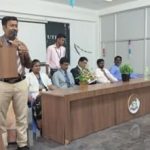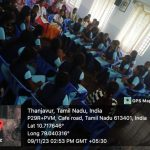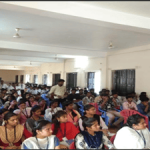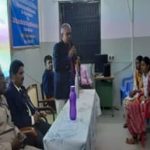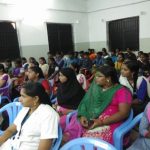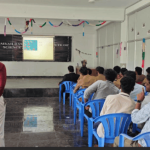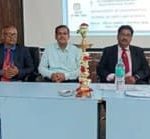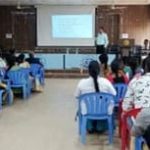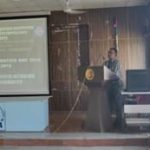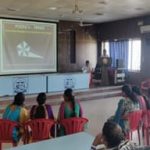The Department of Mathematics was established in 1995. The department offers Undergraduate (from 2008), Masters (from 2008), and Doctoral programs (from 2005). Since 2008, the department has emerged as full-fledged University Department of PRIST Deemed to be University. The Department has a devoted team of staff members and distinguished faculty, graduated from renowned Institutes from India and abroad. Apart from teaching, the faculty members devote their time to academic research also.
The Department regularly organizes seminars, conferences and workshops providing platform for scientific inquiry.
Vision:
- Imparting quality education to the students and inculcating the spirit of research through innovative teaching and research methodologies.
- To prepare the students to face the challenges in real world.
- To become a centre of academic excellence in mathematics
Mission:
- Curriculum and instructional practices that enable effective student-centric learning
- Promoting world class research in mathematics
- Combine academics with the delight of mathematical findings
- Range of course offerings and curriculum relevant to diversified programmes such as Science, Engineering, Arts, Business and Management
B.Sc. Mathematics (3-year Programme)
Programme Outcomes – POs
- To understand and apply the knowledge of mathematical science to solve real life problems.
- To design the methodology most appropriate to the problem on hand.
- To analyze and interpret all possible solution outputs and generate novel plans based on the outputs.
- To work in team and prioritize the success of the team.
- To appreciate and learn the art of life-long learning.
M.Sc. Mathematics (2-year Programme)
Programme Outcomes – POs
- To apply the knowledge of mathematical science to solve real life problems.
- To design the methodology suitable to the challenge encountered.
- To analyze and interpret every possible solution and bring about new ideas based on the outputs.
- To inculcate research aptitude in the mathematical science.
- To work in team, assume leadership and eventually prioritize the success of the team.
Ph.D. Programme
The Ph.D. programme includes an integrated sequence of course work and research in various branches of Mathematics. Scholars are selected after clearing the entrance examination conducted by PRIST.
Add on, Certificate and Diploma courses
- Add-on level – Formal Languages and Automata Theory, Mathematical Modelling
- Certificate level – Quantitative Aptitude and reasoning, Business Mathematics
- Diploma level – Mathematics for Competitive Examination, Statistical Methods
More information on admission to all the above programmes may be found at www.prist.ac.in
Sl.No | Staff Name | Designation | Qualification |
1 | Dr. S. SUBRAMANIAN | Professor | M.Sc.,M.Phil., B.Ed., Ph.D |
2 | Dr. S. UDAYA KUMAR | Professor | M.Sc.,M.Phil., B.Ed., Ph.D |
3 | Dr. D.R. KIRUBAHARAN | Associate Professor | M.Sc.,M.Phil., B.Ed., Ph.D |
4 | Dr. A. SAIVARAJAN | Associate Professor | M.Sc.,M.Phil., B.Ed., Ph.D |
5 | Dr. S. SANKARA NARAYANAN | Associate Professor | M.Sc.,M.Phil., Ph.D |
6 | Dr. R. ABIRAMI | Assistant Professor | M.Sc.,M.Phil., M.Ed., Ph.D |
7 | Dr. A. USHA | Assistant Professor | M.Sc.,M.Phil., Ph.D |
8 | Dr. G. KOMAHAN | Assistant Professor | M.Sc.,M.Phil., P.G.D.C.A., M.Tech., Ph.D |
9 | Dr. S. SHANMUGASUNDARAM | Assistant Professor | M.Sc.,M.Phil., Ph.D |
10 | Mr. MARIA THANGARAJ | Assistant Professor | M.Sc.,M.Phil., SET |
11 | Mr. THIRUPATHY | Assistant Professor | M.Sc.,M.Phil., SET |
12 | Dr. BAMINI | Assistant Professor | M.Sc.,M.Phil., Ph.D |
13 | Mr.S. MAHESHWARAN | Assistant Professor | M.Sc., M.Phil., PGDCA, B.Ed., |
14 | Dr. MOORTHY | Assistant Professor | M.Sc.,M.Phil., Ph.D |
15 | Mr. SITHESWARAN | Assistant Professor | M.Sc.,M.Phil., SET |
SOME RECENT PUBLICATIONS :
- M. Anusiya & Dr. A. Usha, Facebook Addiction: Advanced Vogel’s Approximation Method of unbalanced Fuzzy Transportation problems, Advances in Nonlinear Variational Inequalities, ISSN:1092-910X, vol 27 No.3(2024).
https://internationalpubls.com/index.php/anvi/article/view/1390
- M. Anusiya & Dr. A. Usha, Instagram Addiction: Advanced Vogel’s Approximation Method (AVAM) A New Approach to Determine Penalty Cost for Better Feasible Solution of Transportation Problem. Journal of the Maharaja Sayajirao University of Baroda ISSN : 0025-0422 Volume-58, No.1(VIII) 2024 436.
https://internationalpubls.com/index.php/anvi/article/view/1390
- R.Kirubaharan., Study of Three Dimensional Casson-Nanofluid Flow due to a Linear Porous Stretching Sheet in the Presence of Double Diffusion Effects.
https://ijassa.ipu.ru/index.php/ijassa/article/view/1539
- R.Kirubaharan & K.Sreejil., “Strong and weak perfect dominating set in fuzzy graph” in Scopus-Indexed Peer-Reviewed International Journal named by “Lecture JOURNAL OF ALGEBRAIC STATISTICS”(Vol 13, No 1,2022, p.19-24,https: //publishoa.com) ISSN: 1309-3452
https://publishoa.com/index.php/journal/article/view/55
- Joseph, D. R. Kirubaharan.,FUZZY MINIMAL AND MAXIMAL Δ-OPEN SETS, Creative Mathematics and Informatics, ISSN 1584 – 286X,ISSN 1843 – 441X, Vol 31, No:2, 2022, UGC Care
https://www.researchgate.net/publication/365367985_Fuzzy_Minimal_and_Maximal_d-Open_Sets
- R. Kirubaharan & Anu Pius., APPLICATION OF CRYPTOGRAPHY IN DATA PRIVACY USING FUZZY GRAPH THEORY., Journal of Discrete Mathematical Sciences & Cryptography, Taylor & Francis., Vol. 24 (2021), No. 8, pp. 2389–2401,ISSN 0972-0529 (Print), ISSN 2169-0065 (Online) ,DOI : 10.1080/09720529.2021.2014146
- Joseph, R. Balakumar.,FUZZY PARAOPEN SETS AND MAPS IN FUZZY TOPOLOGICAL SPACES, ANNALS OF COMMUNICATIONS IN MATHEMATICS, Volume 4, Number 2 (2021), 131-140,ISSN: 2582-0818
- A. USHA is Appointed as General Editor for Indian Journal of Advanced Mathematics (IJAM) for the year 2024.
- A. USHAis the Member of Editorial Board of “Blue Eyes Intelligence Engineering and Sciences Publication (BEIESP) for the year 2023-24.
- A. USHA, secured a Patent for her Invention “Method and System for Modeling Hesitant Bipolar-Valued Fuzzy Graphs in Mathematics” for the year 2023.
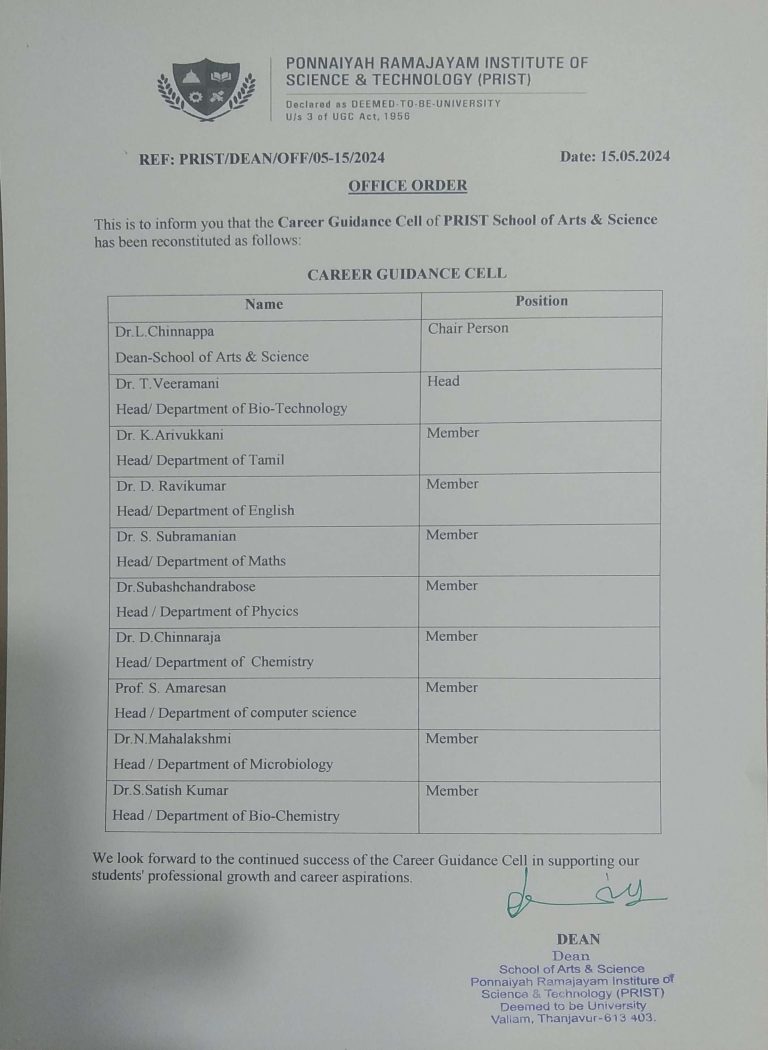
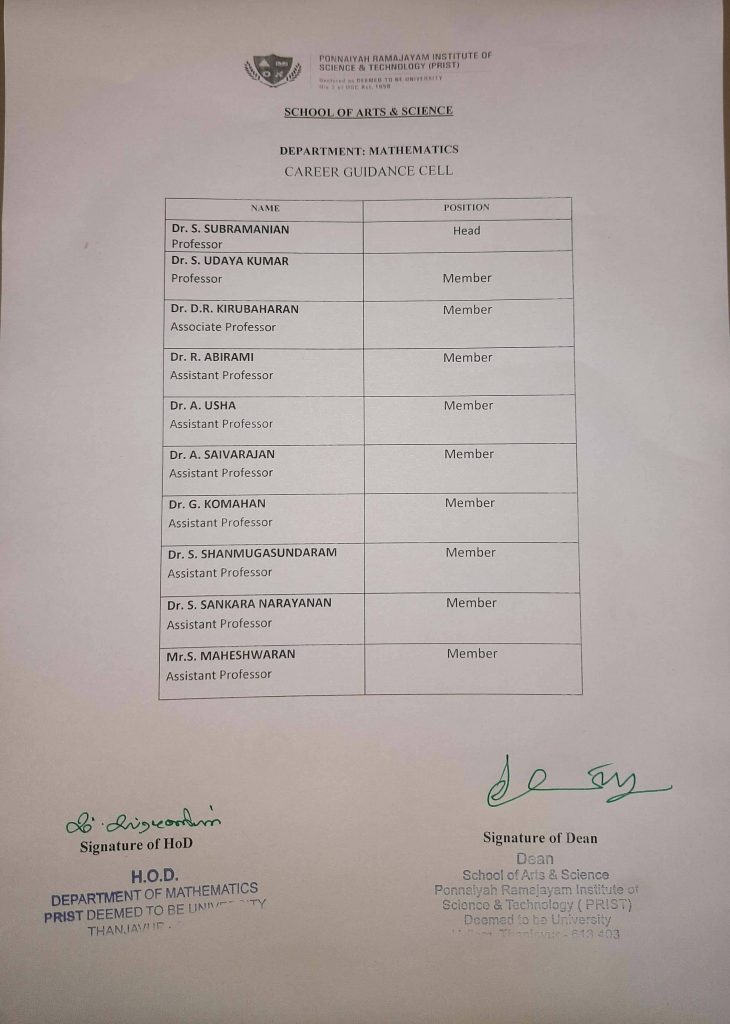
- Club Activity – Math Art – held on 5th September 2024.
- Workshop on “Quantitative Aptitude and Data Interpretation” – held on 29th August 2024.
- Career Counseling Program on “Decision Making” – held on 8th August 2024.
- In-House Seminar on “Impromptu Speaking” – held on 5th July 2024.
- Soft Skills Program on “Emotional Intelligence” – held on 25th June 2024.
- Life Skills Program on “Motivation and Perseverance” – held on 24th July 2024.
- Workshop on “NET & SET: Achievers 2024” – held on 13th March 2024.
- In-House Seminar on “Presentation Skills” – held on 27th February 2024.
- Career Counseling Program on “Developing Interpersonal Skills” – held on 21st February 2024.
- Life Skills Program on “Stress Management & Self-Care” – held on 23rd January 2024.
- Soft Skills Program on “Developing Empathetic Leadership” – held on 4th January 2024.
- Seminar on “English Language Enrichment Skill” – held on 24th October 2023.
- Career Counseling Program on “Fast Track to Heights” – held on 4th October 2023.
- Soft Skills Program on “Developing Teamwork and Rapport” – held on 23rd August 2023.
- Workshop on “Cabri” – held on 22nd August 2023.
- Workshop on “Coaching for Staff Selection Commission Exam” – held on 27th June 2023.
- Life Skills Program on “Conflict Resolution” – held on 20th June 2023.
- Club Activity – “Digit Dominators” – held on 8th June 2023.
- One day seminar on ‘Application of Fuzzy Transportation Problem’- 16th November-2022, organized by Department of Mathematics, PRIST Deemed to be University.
- One day seminar on ‘Mathematical Modelling’- 5th May-2022, organized by Department of Mathematics, PRIST Deemed to be University.
- One day seminar on ‘Mathematics Tips & Tricks for CSIR-NET’-5th May-2022, organized by Department of Mathematics, PRIST Deemed to be University.
- Guest Lecture on ‘Mathematics – An Effective Approach’ 7th October- 2020, Organized by PRIST Deemed to be University.
- Webinar on ‘Diophantine Equation of Pellian Type’ 3rd October – 2020 Organized by PRIST Deemed to be University.
- In- house seminar on ‘Application of Mathematical model in Physical Life’,- 13th Feb-2020, Organized by PRIST Deemed to be University
Head, Department of Mathematics, School of Arts and Science, PONNAIYAH RAMAJAYAM INSTITUTE OF SCIENCE & TECHNOLOGY(PRIST), Vallam, Thanjavur -613403.
Email: hodmaths@prist.ac.in
Phone: 04362-265021
SN | Attributes | Description |
1 | Disciplinary Knowledge | Capable of demonstrating comprehensive knowledge and understanding of one or more disciplines that form a part of an undergraduate programme of study.
|
2 | Communication Skills | Ability to express thoughts and ideas effectively in writing and orally; communicate with others using appropriate media; confidently share one’s views and express herself/himself; demonstrate the ability to listen carefully, read and write analytically, and present complex information in a clear and concise manner to different groups. |
3 | Critical Thinking | Capability to apply analytic thought to a body of knowledge; analyze and evaluate evidence, arguments, claims, beliefs on the basis of empirical evidence; identify relevant assumptions or implications; formulate coherent arguments; critically evaluate practices, policies and theories by following scientific approach to knowledge development.
|
4 | Problem Solving | Capacity to extrapolate from what one has learned and apply their competencies to solve different kinds of non-familiar problems, rather than replicate curriculum content knowledge; and apply one’s learning to real life situations.
|
5 | Analytical Reasoning | Ability to evaluate the reliability and relevance of evidence; identify logical flaws and holes in the arguments of others; analyse and synthesise data from a variety of sources; draw valid conclusions and support them with evidence and examples, and addressing opposing viewpoints. |
6 | Research-related Skills | A sense of inquiry and capability for asking relevant/appropriate questions, problematizing, synthesizing and articulating; ability to recognize cause-and-effect relationships, define problems, formulate hypotheses, test hypotheses, analyze, interpret and draw conclusions from data, establish hypotheses, predict cause-and-effect relationships; ability to plan, execute and report the results of an experiment or investigation. |
7 | Cooperation/Team Work | Ability to work effectively and respectfully with diverse teams; facilitate cooperative or coordinated effort on the part of a group, and act together as a group or a team in the interests of a common cause and work efficiently as a member of a team. |
8 | Scientific Reasoning | Ability to analyze, interpret and draw conclusions from quantitative/qualitative data; and critically evaluate ideas, evidence and experiences from an open-minded and reasoned perspective. |
9 | Reflective Thinking | Critical sensibility to lived experiences, with self -awareness and reflexivity of both self and society. |
10 | Information/Digital Literacy | Capability to use ICT in a variety of learning situations, demonstrate ability to access, evaluate, and use a variety of relevant information sources; and use appropriate software for analysis of data.
|
11 | Self-directed Learning | Ability to work independently, to identify appropriate resources required for a project and to manage a project efficiently.
|
12 | Multicultural Competence | Possess knowledge of the values and beliefs of multiple cultures and a global perspective; and capability to effectively engage in a multicultural society and interact respectfully with diverse groups.
|
13 | Moral and Ethical Awareness/Reasoning | Ability to embrace moral/ethical values in conducting one’s life, formulate a position/argument about an ethical issue from multiple perspectives, and use ethical practices in all work. Capable of demonstrating the ability to identify ethical issues related to one’s work, avoid unethical behavior such as fabrication, falsification or misrepresentation of data or committing plagiarism, not adhering to intellectual property rights; appreciating environmental and sustainability issues; and adopting objective, unbiased and truthful actions in all aspects of work.
|
14 | Leadership Readiness/Qualities | Capability for mapping out the tasks of a team or an organization, and setting direction, formulating an inspiring vision, building a team who can help achieve the vision, motivating and inspiring team members to engage with that vision, and using management skills to guide people to the right destination, in a smooth and efficient way.
|
15 | Lifelong Learning | Ability to acquire knowledge and skills, including “learning how to learn‟, that are necessary for participating in learning activities throughout life, through self- paced and self-directed learning aimed at personal development, meeting economic, social and cultural objectives, and adapting to changing trades and demands of work place through knowledge/skill development.
|

